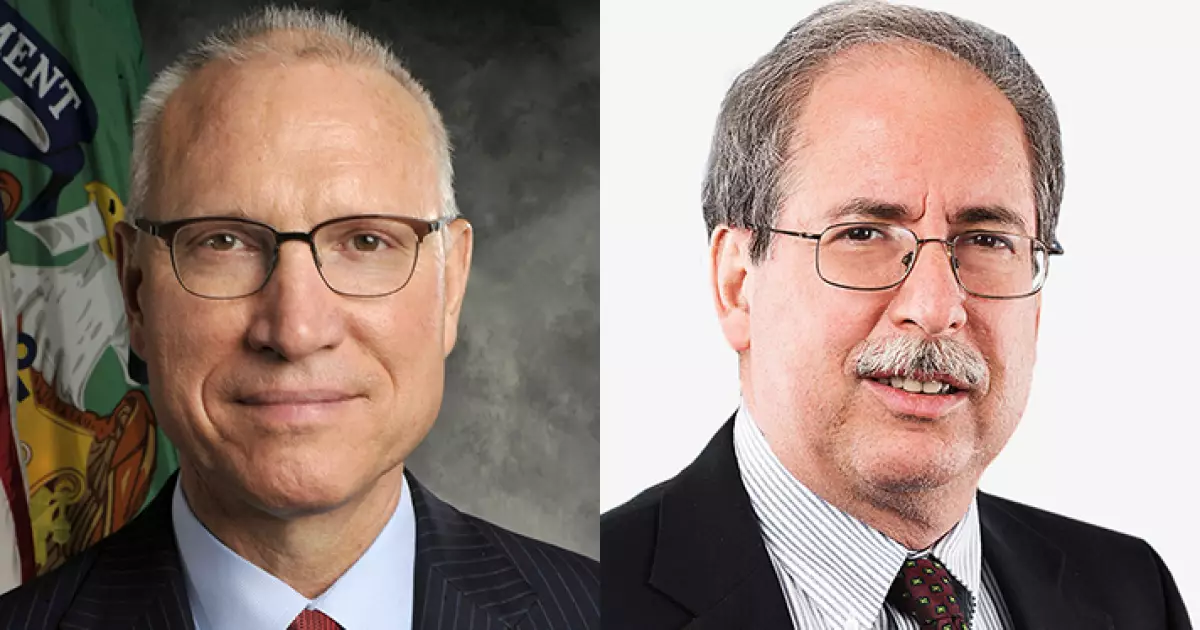For decades, the municipal bond market, a crucial component within the larger financial ecosystem, has operated without stringent oversight, raising concerns among industry professionals about transparency and risk. With a total market value exceeding $4 trillion, the call for federal oversight by prominent figures in public finance such as David Dubrow and Kent Hiteshew signals a pivotal shift in how municipal bonds are regulated. Their provocative assertion suggests that the self-regulating status quo is no longer adequate, especially in light of several high-profile defaults that have rocked the municipal landscape in recent years.
The conversation surrounding the regulation of municipal bonds is not new; it has roots that stretch back many decades. Since the Securities and Exchange Commission (SEC) was established in 1933, the municipal bond market has enjoyed a level of exemption from rigorous federal oversight. Historical events, such as New York City’s near-default in 1974 and the Washington Public Power Supply System’s extraordinary bankruptcy in the early 1980s, prompted actions that introduced indirect regulatory frameworks, such as Rule 15c2-12. This rule mandated underwriters to ensure detailed disclosures were made, thus creating a semblance of oversight. Yet, as Dubrow notes, these measures were reactive rather than proactive, revealing a significant gap in ongoing regulatory rigor tailored to the ever-evolving nature of the muni market.
Both Dubrow and Hiteshew emphasize that the nature of issuers has shifted dramatically over time, with private activity bonds representing a sizeable portion of the market. This evolution necessitates a reassessment of disclosure standards to reflect the realities of modern finance. The unique attributes of municipal securities compared to their corporate counterparts underline the inconsistency in practices that can lead to a misrepresentation of risk. The duo argues for a more stringent and contemporary framework for disclosure that addresses this inconsistency, ideally through legislative measures that empower the SEC and the Municipal Securities Rulemaking Board (MSRB) to directly regulate issuers, rather than relying solely on underwriters’ compliance.
Contrasting Perspectives: The Issuers’ Resistance
Despite the compelling arguments presented by Dubrow and Hiteshew, opposition from municipal issuers and their legal counsel has emerged. Critics accuse proponents of federal oversight of advocating for an overreach that could stifle the unique self-regulatory nature responsible for many of the market’s positive developments. Jason Akers, from the National Association of Bond Lawyers, believes that crafting a more effective system should come from collaborative discussions within the industry to enhance existing frameworks rather than upheaving an established system. This sentiment underscores a significant point of contention; can a balance be struck between incorporating more rigorous standards while still respecting the merits of self-regulation?
Guiding Principles for Enhanced Transparency
To elevate the discourse around municipal bond disclosure, Dubrow and Hiteshew propose a series of guidelines aimed at modernizing the landscape, including improved readability of offering documents and timely audits. These principles resonate with industry experts like Emily Brock, who acknowledges the strides already taken by issuers toward better disclosure practices. This recognition raises the question: how can the dialogue between federal oversight advocates and traditionalists lead to an actionable outcome that ultimately benefits investors without undermining the foundations of the municipal bond market?
Challenges and the Path Forward
Addressing the deficiencies in municipal bond disclosures requires acknowledging the complexity of the regulatory environment. Long-standing issues like the timeliness of financial audits must be prioritized, as indicated by analysts like Rich Ciccarone, who point to ongoing failures by certain states to meet existing obligations. This latency not only risks investor confidence but also threatens the integrity of the entire system. Solutions might entail clearer regulations, scheduled enforcement measures, and fostering collaboration between issuers and regulatory bodies to ensure timely compliance.
The ongoing debate surrounding federal oversight in the municipal bond market reflects broader tensions inherent in financial regulation. As Dubrow and Hiteshew advocate for an overhaul of disclosure standards, the industry must grapple with how to preserve the independence that has traditionally defined municipal finance while welcoming essential reforms that protect investors and enhance transparency. The juxtaposition of tradition and proposed modern practices calls for constructive dialogue—one that ultimately aims to create a more secure and informed municipal bond market for all stakeholders involved.

